#Thomas Hamlet
Text
Thomas Clark, Eccentric Entrepreneur and multimillionaire
Thomas Clark may be a name that most people are unaware of, but many will have heard of Exeter Exchange, also known as Exeter Change on The Strand, London, along with its more famous owners – Gilbert Pidcock, followed by Edward Cross, so we can now add a little more about another occupant of that building – Thomas Clark, who occupied premises there for around 50 years.
A gentle ride from Exeter…
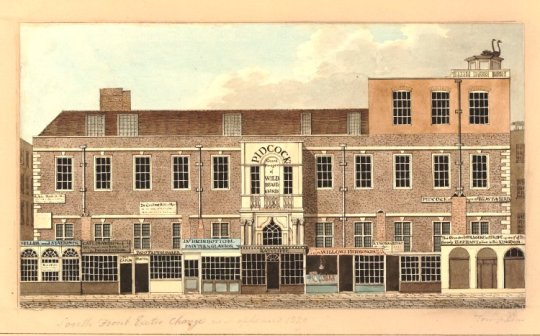
View On WordPress
1 note
·
View note
Text
opera stream alert!
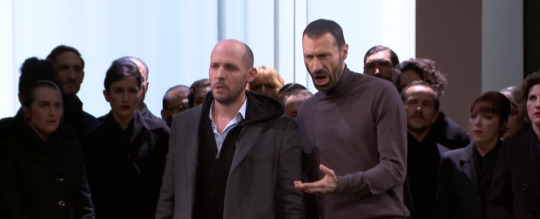
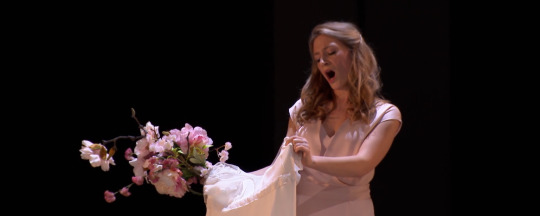
What: Ambroise Thomas: Hamlet, Paris 2019
When: Sunday, January 7, at 19:00 CET (18:00 UCT, 13:00 EST)
Where: Kosmi – I will post a link before we start!
Who: everyone is welcome!
Extra info: It's Hamlet, it's about Hamlet. Murder! Step-parents! Flowers! This opera has it all. It also features some excellent music, in this case performed by Stéphane Degout and Sabine Devieilhe, some of my favorite singers in the world. Both the opera and this specific staging have a bit of a twist ending for Shakespeare fans.
#opera streams#ambroise thomas: hamlet#i copied this format from supercantaloupe 👍#I will try to read the actual play until then but no promises#I'll also keep Cosi fan Tutte on hand in case everyone who shows up prefers that but in the poll “not cosi” won out#I have not used kosmi before but I think it should work
29 notes
·
View notes
Text
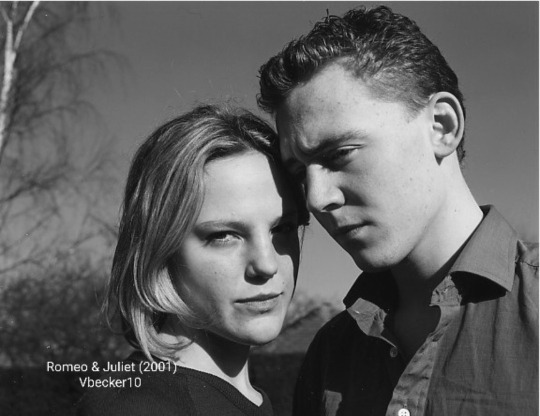
Romeo & Juliet (2001)
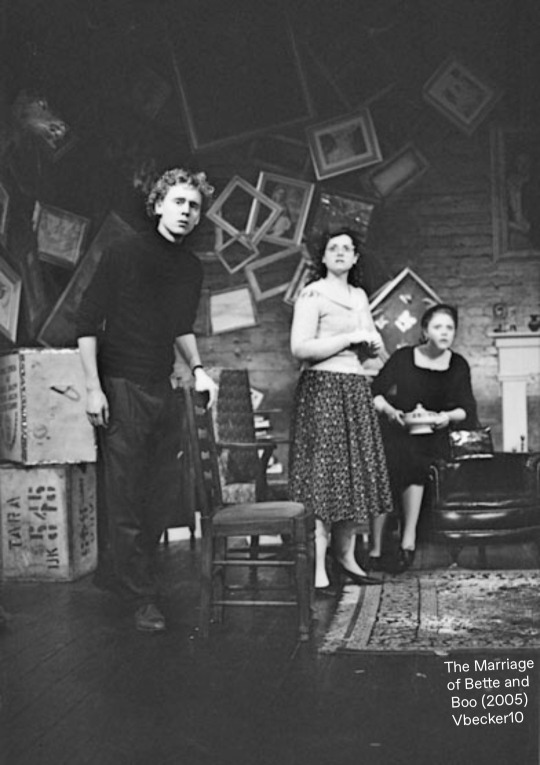
The Marriage of Bette and Boo (2005)

The Fool (2005)
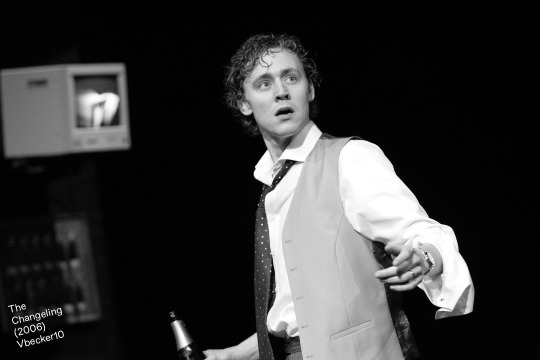
The Changeling (2006)
Cymbeline (2007)
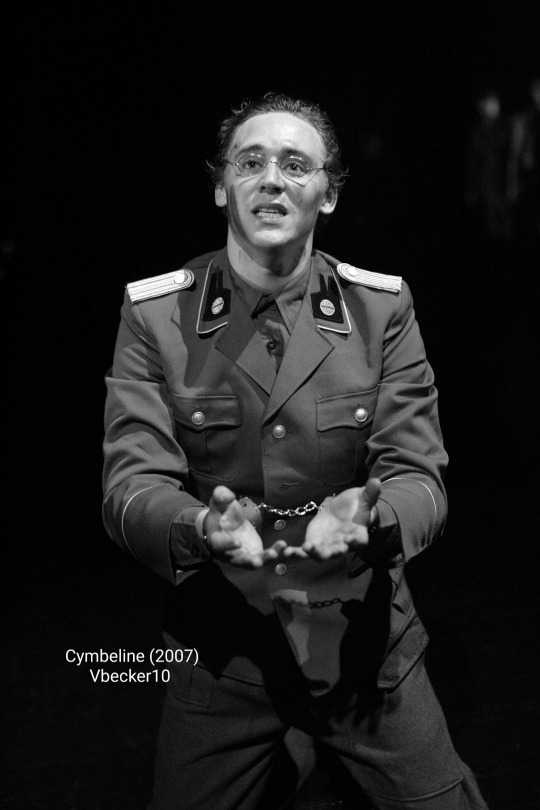
Othello (2007)
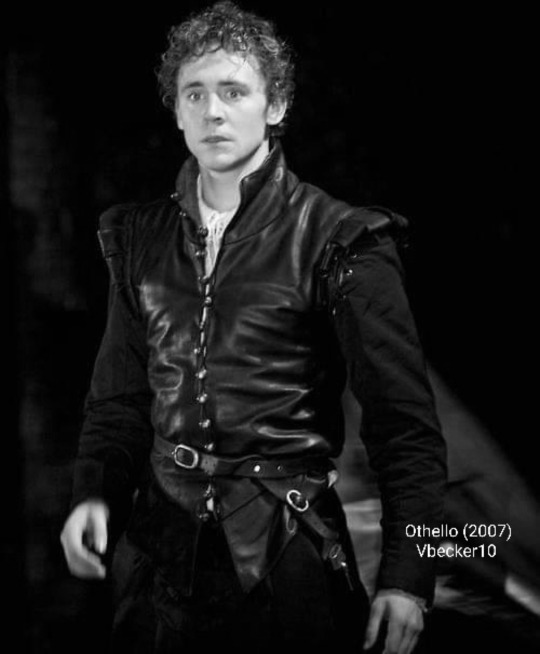
Ivanov (2008)
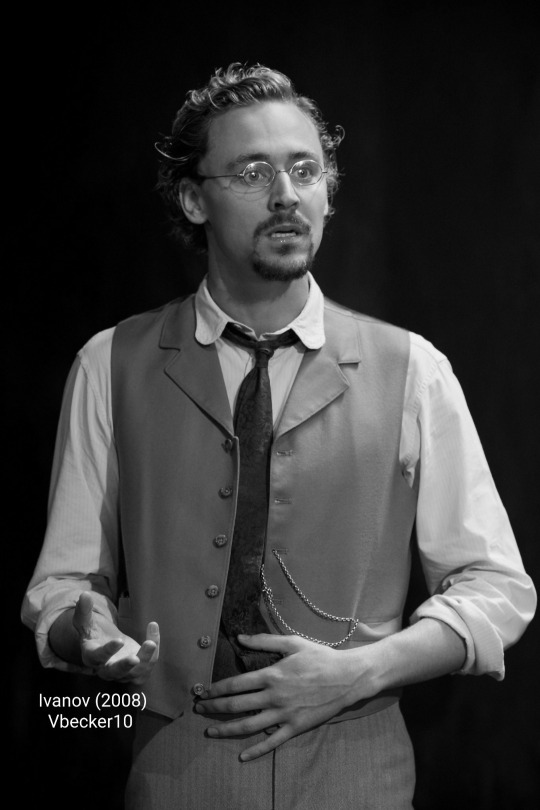

Coriolanus (2013)

Betrayal (2019)

Hamlet (2017)
#tom hiddleston#hiddlestoners#tom hiddleston characters#twhiddleston#hiddlesarmy#twhiddles#twh#thomaswilliamhiddleston#thomas hiddleston#thomas william hiddleston#tom hiddleston plays#betrayal#othello#coriolanus#romeo and juliet#shakespeare#tom hiddleston shakespeare#changeling#hamlet#tom hiddleston ivanov#cymbeline#ages like fine wine
362 notes
·
View notes
Text
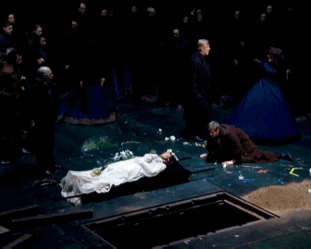

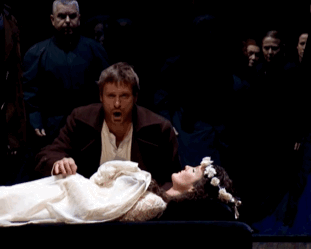
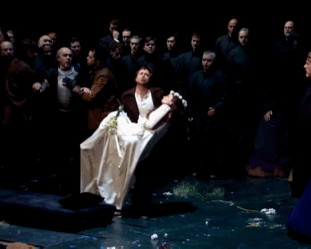
THOMAS: Hamlet | Act 5: Ophélie!
Metropolitan Opera, 2010
Marlis PETERSEN as Ophélie
Simon KEENLYSIDE as Hamlet
OPERA IN HISTORY - March 9
On this day in 1868, Thomas’ grand opera, based on a french adaptation of William Shakespeare’s eponymous play, premiered at the Paris Opéra.
#sorry!!!#Thomas#Opera#Hamlet#Simon Keenlyside#Marlis Petersen#muchadogifs#opera gifs#metropolitan opera#on this day
13 notes
·
View notes
Text
en iyiyi görüyorum, beğeniyorum; fakat en kötüyü yapıyorum.
spinoza - etika
#kitap#edebiyat#blogger#felsefe#kitaplar#blog#kitap kurdu#friedrich nietzsche#baruch spinoza#spinoza#etika#rene descartes#felsefe blog#karl marks#thomas hobbes#dostoyevski#karamazov kardeşler#faust#küçük prens#martin heidegger#bertolt brecht#sappho#sophokles#kral lear#hamlet#william shakespeare#antigone#sokrates#platon#sofist
8 notes
·
View notes
Text

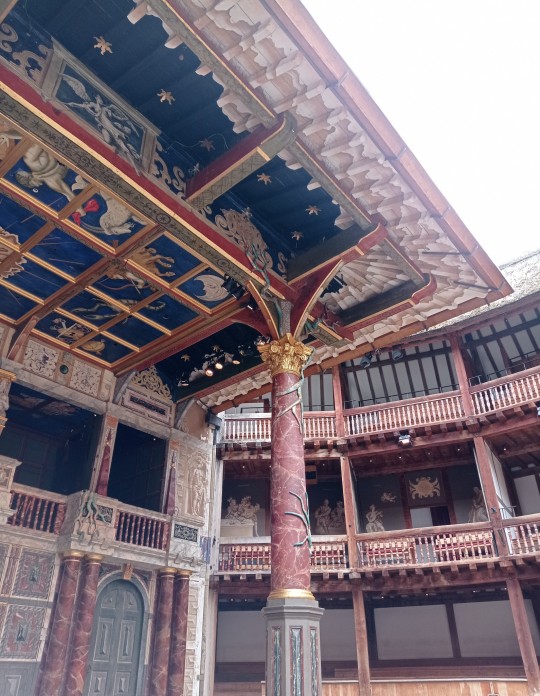
June 6th, 2023 | Less than 10 days left in the UK! I tried to enjoy the sun as much as I could while it lasted in Cambridge, but mostly: today I went to the Shakespeare Globe Theatre to see A Midsummer Night's Dream and it blew my mind. For some context: most of my followers probably don't know this, but I first created this blog under the name a-study-in-shakespeare. At the time, I was obsessed I would most likely have chosen English as a my major if a valuable Shakespeare course was offered by my uni because I fell in love with Hamlet at 14 yo and I tried to read and see as many plays as possible over the years.
Seeing a Shakespeare play in English had never been possible before, and woaw going to see my first one at the Globe of all places (truly) felt like a dream. I'm not familiar with the Globe's productions but I figured it'd be kind of traditional, maybe a bit stuffy and I'm so glad I was wrong. The cast is inclusive and diverse and so talented, the production is magical, whimsical, tragic and incredibly fun, I wish I could find the right words. I will remember this day for a very long time ✨
#my posts#studyblr#litblr#gradblr#phdblr#Shakespeare#the Globe#Shakespeare Globe Theatre#a midsummer night's dream#W's adventures in Cambridge#Nothing will ever come close to Desoteux' production of Hamlet in my 🤍 because it was the first time I saw a Shakespeare play#But man this is close 2nd alongside Thomas Jolly's Richard III#I rediscovered the play entirely
27 notes
·
View notes
Note
Hamlet anon back because Hamlet anon did not realise the ask was answered. This was Hamlet at Purchase College, they filmed all four nights and those are all online somewhere. and both people playing Hamlet were mezzos. I really think this was because they didn't have any baritones that were good enough but I also felt like the mezzo (the one that I saw)'s voice was too small/didn't project enough (the theatre was small) to be like 100% effective (the orchestra overpowered frequently) but that also might be because they had a full orchestra and I sat closer to it. But I assume that like if it was a baritone it would just be like worse? Idk, the men were kind of mediocre across the board vocally (generally with same overpowering by orchestra/general just weirdness issues) but with Hamlet not being a baritone the opera then doesn't really have many baritone roles as well so maybe the problem is just that they have no baritones in a more general sense. But I felt like the baritone gravedigger sounded fine enough that he'd be ok as Hamlet but maybe he has like other issues (stamina?) which was why he got a small role. I felt like the mezzo playing Hamlet's voice was more silvery/light and honestly Ophelie had a fuller voice than she did, so it could have just been she didn't really have the right voice for it. Idk about the other mezzo doing Hamlet but the mezzo doing Gertude was pretty good and I felt like if the singer who sang Gertude sang Hamlet there wouldn't be those issues. I felt like at some degree a developed baritone would be able to carry his sound over Thomas's orchestra better than a mezzo but if there aren't any developed baritones then a mezzo is still ok. Musically I felt like the only weird but was near the end when Hamlet is singing with Laertes and I felt like at one phrase Laertes was supposed to have the higher notes/melody line but that uh didn't really work because Hamlet's notes were up an octave from the original. I think mostly what changed was like the vibes; Hamlet became more like cringe whiny childish depressed than like cringe annoying baritone depressed (?). I overheard someone talking about like how the university decided to explore rep is different now and how they're like doing French rep earlier than normal and again they just did Cendrillon in the winter/fall and I think Prince Charmant and Hamlet become very similar roles if Hamlet is a mezzo, though Prince's tessitura is maybe higher (I've mentioned some of that before).
They also seemed to change the plot to be more like Shakespeare?? Like there was a duel at the end with Laertes and Gertude dies via poison and I assume Hamlet dies (he kinda. collapses on a chair. and then the curtain falls). One of the gravediggers was also played by a woman.
Sorry those thoughts there are a bit out of order but I didn't really want to change them.
I mean the rest was normal, I was focusing a lot on the opera musically and vocally so I ignored a lot of the dramaturgical aspects. For some reason Hamlet kisses Gertude on the lips at one point and I don't really know why they had to do that. I didn't really mean to sound overly critical of the voices but I uh. Spent most of that time critiquing them but I don't mean any ill will on these kids. Ophelie was the obvious vocal highlight (she was quite good) and I feel like Gertude was underrated vocally; she was very very very solid (I mean, she doesn't really have much flashy music, but a lot of the other singers weren't on that level of solid/consistent/good). The rest of the men were overall kind of mediocre like I said but the ghost was very good (though he is like, not a student, he's an adult who's a teacher in the area and went to Purchase College).
I saw the 12/14th cast. I'll include a link to the program & the livestreams.
This was only really long because I know other people might want to read about it.
https://www.purchase.edu/live/profiles/6927-hamlet
https://www.youtube.com/@MusicAtPurchase/streams
hi! i saw this yesterday and then totally forgot to answer it until i just saw your other ask, but thank you! i will be posting this so everyone can see it
5 notes
·
View notes
Photo
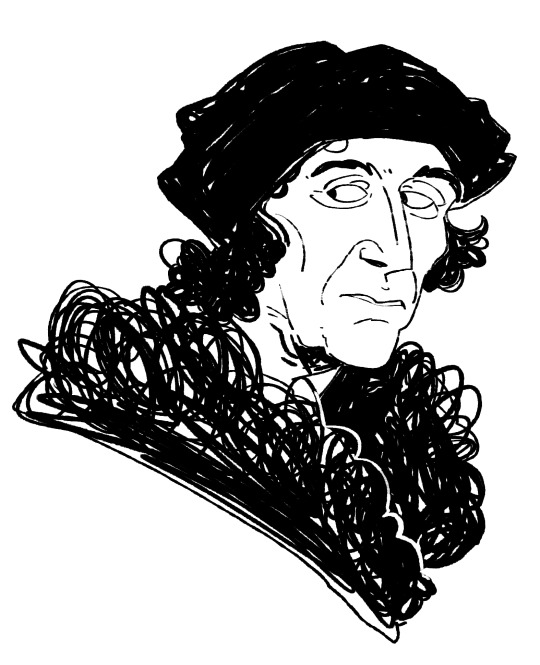
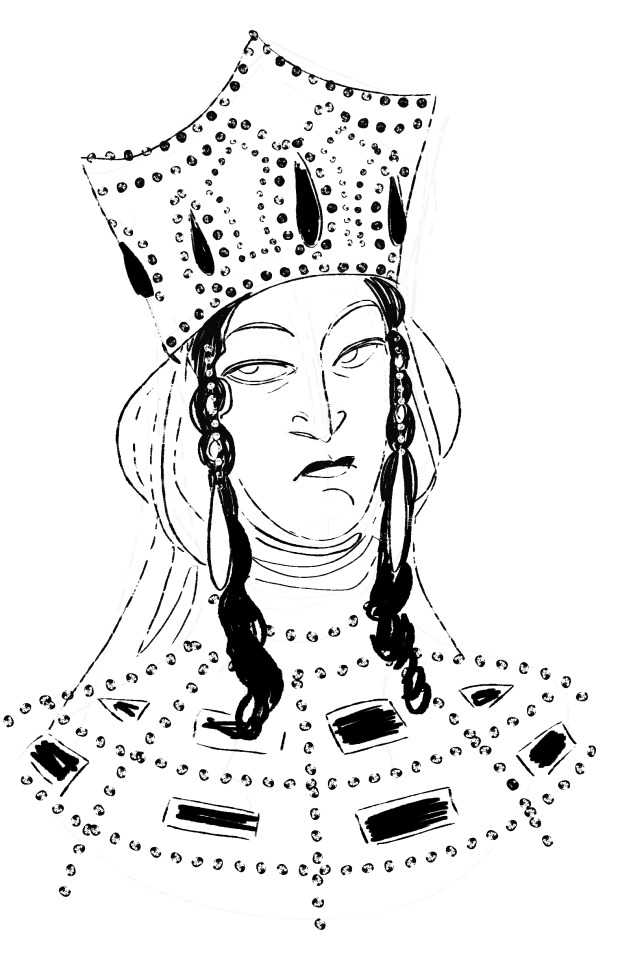
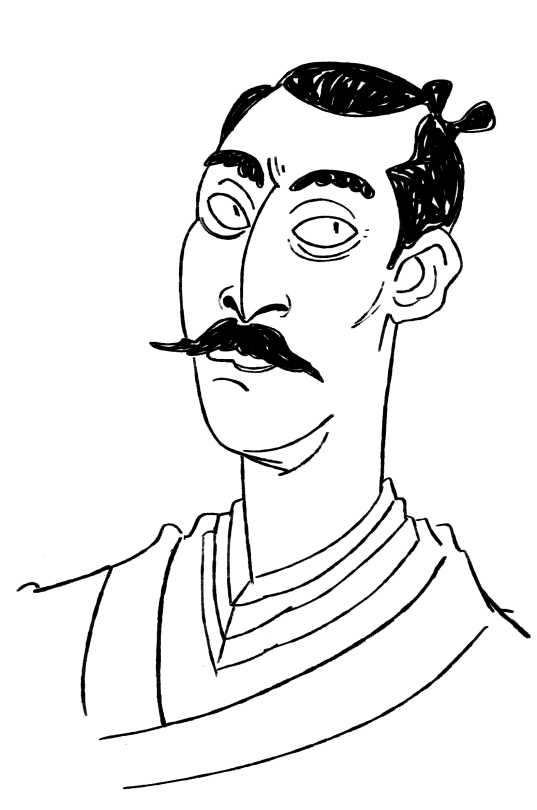
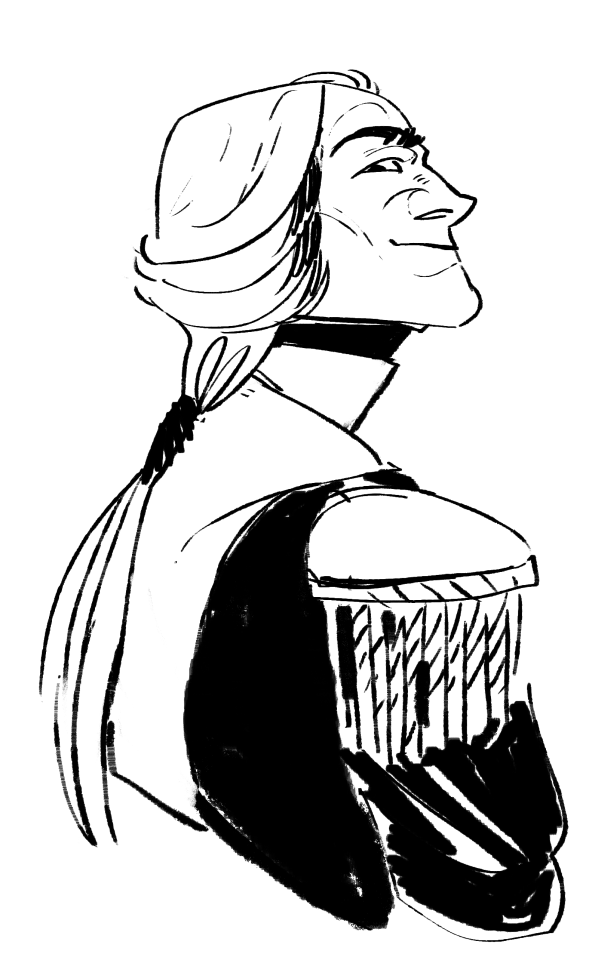

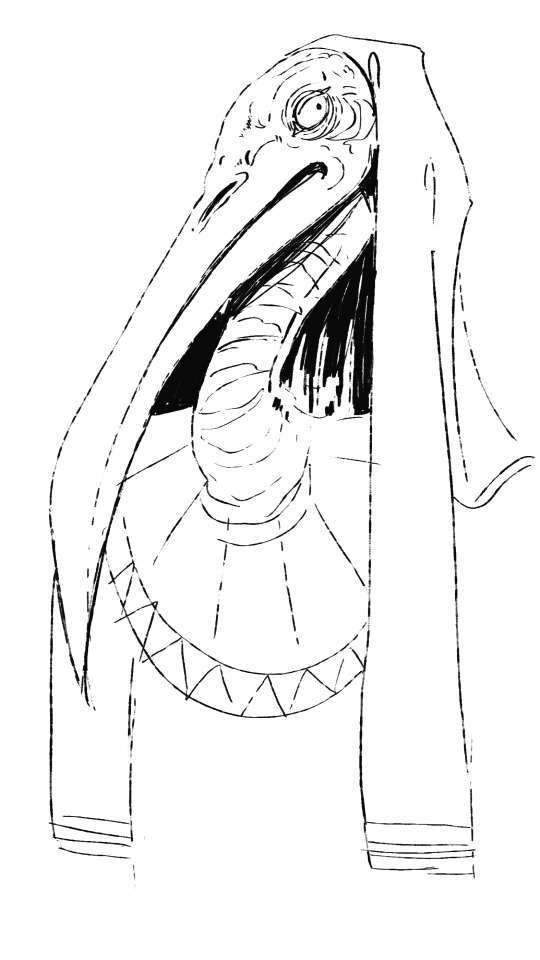
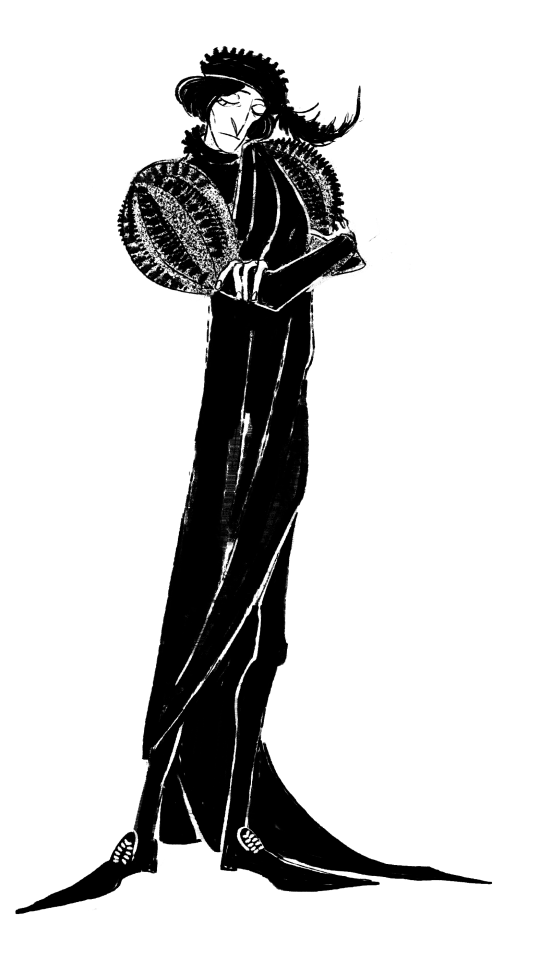
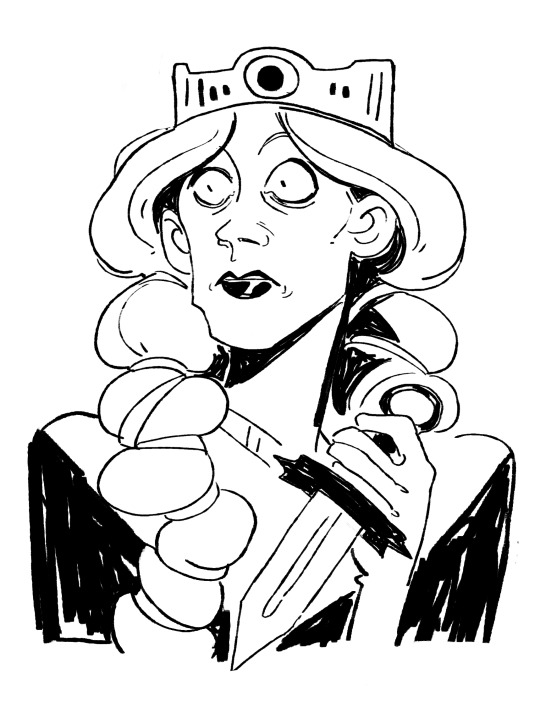

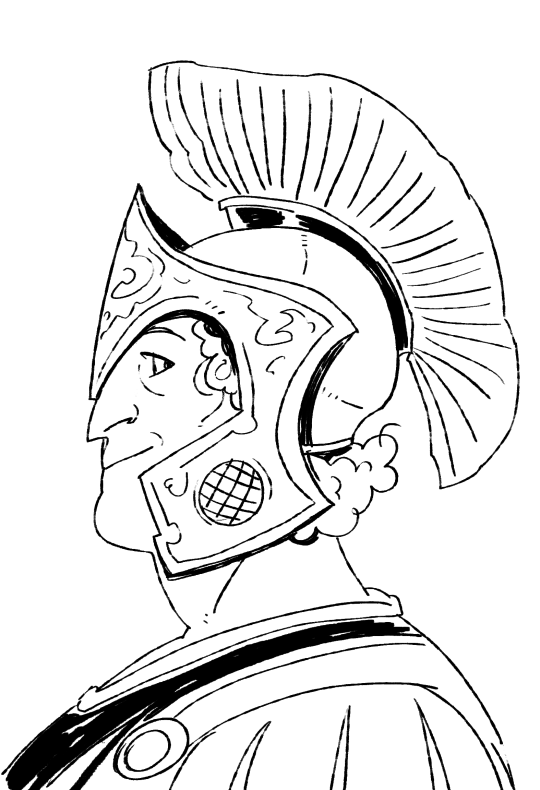
sketch requests from instagram 🖤
#thomas cromwell#king tamar#oda nobunaga#Jean-Baptiste Bessières#mephistopheles#thoth#hamlet#macbeth#dracula#achilles#artists on tumblr#artwins
106 notes
·
View notes
Text
Hamlet (Composer: Ambroise Thomas, 1868)
Until the twentieth century, popular staged versions of Shakespeare's plays were often very different from the texts we read today. Shakespeare-based operas were sometimes adaptations of these stage versions rather than direct responses to Shakespeare. At the end of Ambroise Thomas' Hamlet, for example, Hamlet lives and is proclaimed king. This is not an innovative attempt by the opera's librettists to rewrite Shakespeare, but a reflection of a highly popular version of Hamlet that was all the rage with nineteenth-century Parisian audiences.
Watching an operatic version of a familiar Shakespeare play can be like an adventure in theatrical archaeology, allowing us to relive how Shakespeare's plays were often experienced in the past: as something new, highly dramatic, exciting, and with unexpected effects. Note how the subdued costume colours and design in director Cyrile Teste's 2017 production for the Opéra Comique in Paris are carefully calculated to minimise a distinction between the audience and the performers. As a result, the Ghost can surprise everyone by appearing from his seat in the auditorium, where he has been sitting unobtrusively, dressed like other operagoers.
#shakespeare#william shakespeare#opera#music#shakespeare and music#Das Liebesverbot#The Ban on Love#measure for measure#hamlet#wagner#Ambroise Thomas#Brett Dean#Berlioz#much ado#Béatrice et Bénédict
11 notes
·
View notes
Text
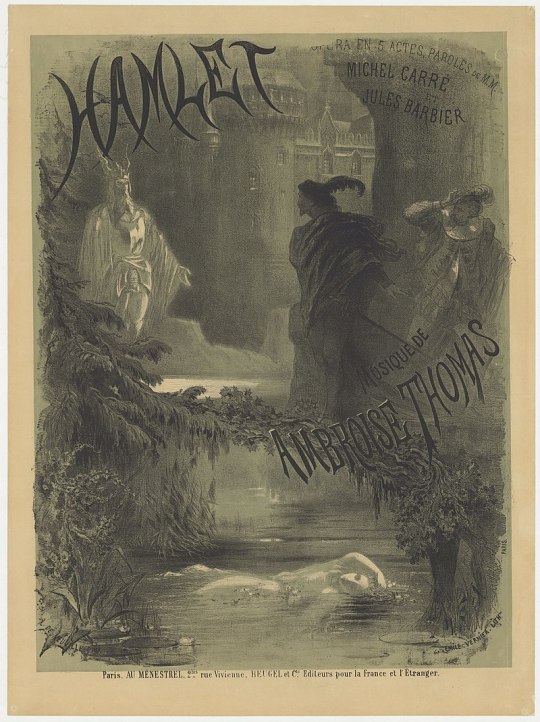
youtube
5 notes
·
View notes
Text

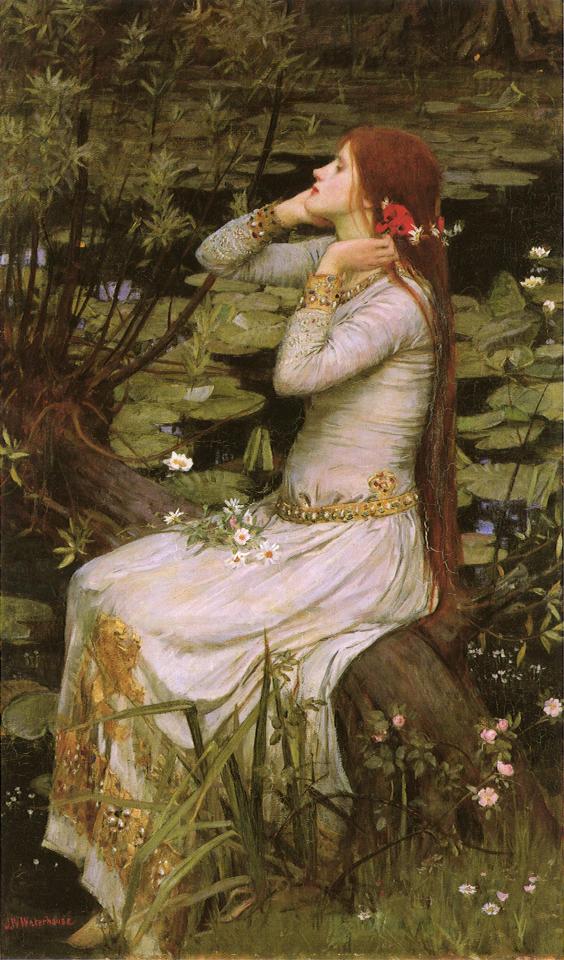

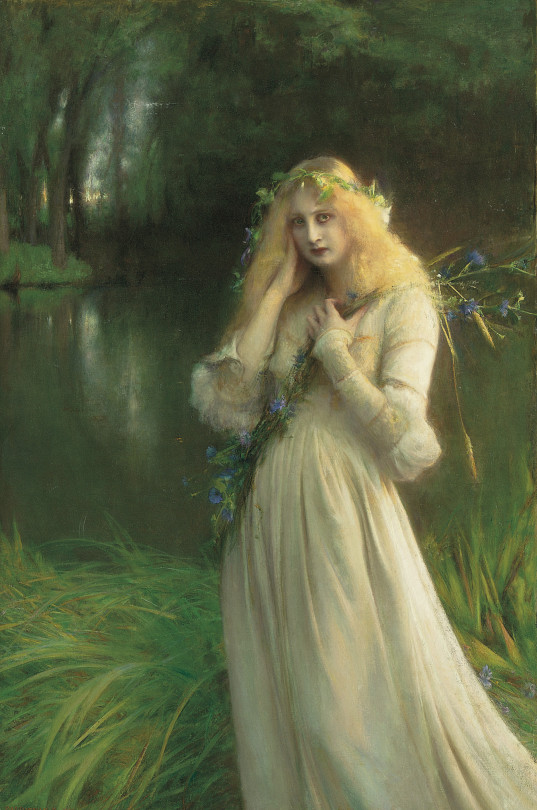

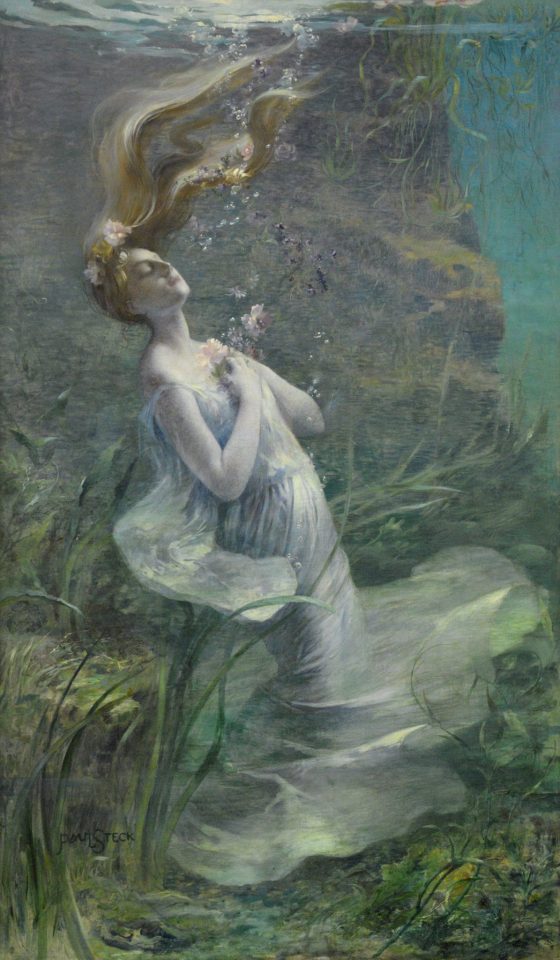

Honremos la primer publicación con un personaje shakesperiano icónico en el mundo del arte, Ofelia...
Gertrude
"There is a willow grows askaunt the brook,
That shows his hoary leaves in the glassy stream,
Therewith fantastic garlands did she make
Of crow-flowers, nettles, daisies, and long purples
That liberal shepherds give a grosser name,
But our cull-cold maids do dead men’s fingers call them.
There on the pendant boughs her crownet weeds
Clamb’ring to hang, an envious sliver broke,
When down her weedy trophies and herself
Fell in the weeping brook. Her clothes spread wide,
And mermaid-like awhile they bore her up,
Which time she chaunted snatches of old lauds,
As one incapable of her own distress,
Or like a creature native and indued
Unto that element. But long it could not be
Till that her garments, heavy with their drink,
Pull’d the poor wretch from her melodious lay
To muddy death."
Gertrudis
"Donde hallaréis un sauce que crece a las orillas de ese arroyo, repitiendo en las ondas cristalinas la imagen de sus hojas pálidas. Allí se encaminó, ridículamente coronada de ranúnculos, ortigas, margaritas y luengas flores purpúreas, que entre los sencillos labradores se reconocen bajo una denominación grosera, y las modestas doncellas llaman, dedos de muerto. Llegada que fue, se quitó la guirnalda, y queriendo subir a suspenderla de los pendientes ramos; se troncha un vástago envidioso, y caen al torrente fatal, ella y todos sus adornos rústicos. Las ropas huecas y extendidas la llevaron un rato sobre las aguas, semejante a una sirena, y en tanto iba cantando pedazos de tonadas antiguas, como ignorante de su desgracia, o como criada y nacida en aquel elemento. Pero no era posible que así durarse por mucho espacio. Las vestiduras, pesadas ya con el agua que absorbían la arrebataron a la infeliz; interrumpiendo su canto dulcísimo, la muerte, llena de angustias."
1) John William Waterhouse – Ophelia, 1910
2) John William Waterhouse – Ophelia, 1894
3) Joseph Kirkpatrick – Ophelia, 1896
4) Pascal Dagnan-Bouveret - Ophelia
5) Arthur Hugues - Ophelia
6) Paul Albert Steck – Ophelia, 1895
7) Thomas Francis Dicksee - Ophelia
PARTE 1
#art#traditional art#19th century art#art details#british art#fine art#traditional painting#tragedy#shakespeare#hamlet#john william waterhouse#joseph kirkpatrick#arthur hughes#paul albert steck#thomas francis dicksee#waterhose#dicksee#ophelia#ofelia
24 notes
·
View notes
Text

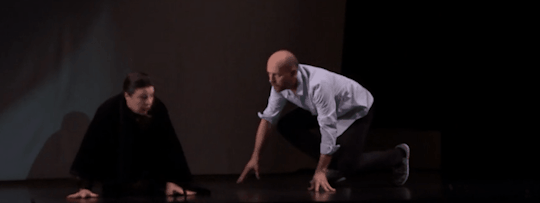
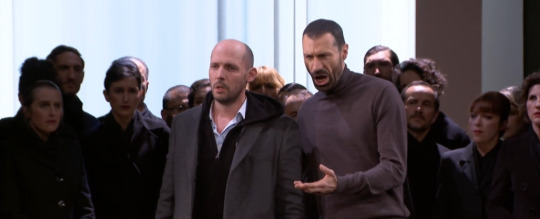
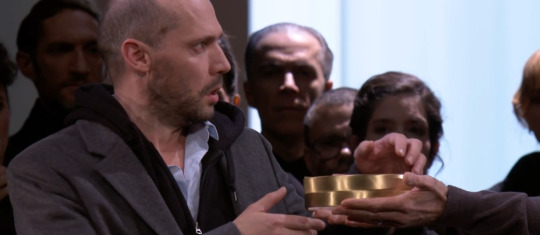

Stéphane Degout as Hamlet
Ambroise Thomas, Hamlet, Opéra Comique 2019.
11 notes
·
View notes
Text
<3
#sabine devieilhe#hamlet opera#ambroise thomas#ophelia’s scene is one i really really find to be so pretty#Spotify
5 notes
·
View notes
Text
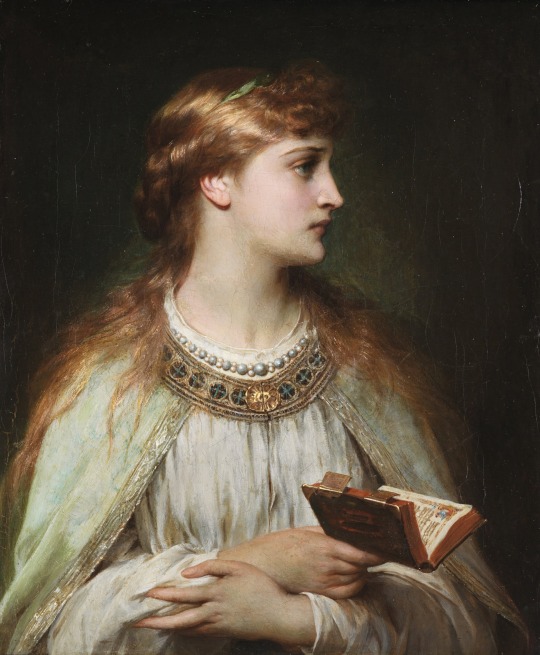
Ofelia (Thomas Francis Dicksee, 1864)
#art#19th century art#19th century painting#1800s#1860s#thomas francis dicksee#🏴#ophelia#1864#hamlet#william shakespeare#timeless beauty#aeterna venustas#el eterno femenino
33 notes
·
View notes
Text
aklımı nasıl aptalca kullandığım konusunda birkaç söz söylememe izin ver.
saint augustin - itiraflar
#saint augustine#saint augustinus#itiraflar#itiraflarım#confessions#marcus aurelius#kendime düşünceler#friedrich nietzsche#ecce homo#böyle buyurdu zerdüşt#dostoyevski#agatha christie#sherlock holmes#william shakespeare#hamlet#thomas bernhard#kitap#edebiyat#blogger#felsefe#kitaplar#blog#kitap kurdu#anna karenina#tolstoy#abelard heloise#simone de beauvoir#love letters#mektup#bulantı
17 notes
·
View notes
Text

It has heen well suggested that M. Amhroise Thomas's lyrical version oi Hamlet should have been called Ophelia. The question would not then have been raised in too direct a manner, whether or not Shakespear's tragedy has received worthy treatment at the hands of its operatic adaptors. Moreover, Ophelia, who is not the chief character, who is scarcely even a character of the first degree of importance, in Shakespear's Hamlet, is the principal personage, both in a musical and in a dramatic point of view, in the Hamlet prepared for the composer by MM. Barbier and Carre. Finally, the longest, most elaborate, and altogether the best scene in the operatic Hamlet y does not exist in the Hamlet of Shakespear at all. Here the name of Shakespear cannot be used against M. Thomas ; and if he had confined himself to this scene and entitled it The Death of Ophelia , one universal feeling of admiration would have been expressed for the work. The object, however, of M. Thomas was to produce not a poetical little cantata, but a grand opera containing a great part for Mdme. Nilsson ; and accordingly the scene of OpheHa's death is followed by an act which is superfluous, and is preceded by three acts which are in a great measure irrelevant. The parent notion of the opera was certainly the idea that the fair-haired, soft-voiced, Swedish soprano would be in every way an admirable representative of Shakespear's Scandinavian heroine; and so indeed she has proved. Mdme. Nilsson has deeper qualifications for the part than purely external ones, which, nevertheless, may be said to suggest others. All the sentiment of the character seems to belong to her naturally, so that as an actress alone, if she had not a note to sing, she would still be an admirable Ophelia. Then the pure fresh quality of her voice is quite in harmony with the rest of the personage. If the Shakespearian heroines may be divided into two categories, like the heroines of modern opera, Ophelia is eminently a " light soprano '* part, as Lady Macbeth is a part for a " dramatic soprano." The amount of Scandinavianism discoverable in the character of Shakespear's Ophelia, is, probably, very slight ; but M. Thomas has given a tinge of national colour to the music sung by the Ophelia of his opera. This he has done, not by the vulgar expedient of dragging in one national air in complete form, but by reproducing the character of the Swedish melodies (for operatic purposes Sweden and Denmark are one) in both the heroine's grand scenas, and by employing here and there actual passages of Swedish origin.
In the power of characterisation belonging to music lies one of the strong points of opera as a form of art. A Scotchman sings something in the Scotch style, or a Russian something in the Russian style, and the nationality of the personage is at once painted beyond the possibility of mistake. Neither does M. Thomas make any endeavour in Hamlet to give us a Scandinavian finale, wisely contenting himself with such a finale as the Hebrew-Prussian Meyerbeer might have wi-itten. Ophelia's solos are interspersed with little Scandinavian snatches ; and the villagers of the neighbourhood of Elsinore dance, in one place, to a quaint but very graceful melody which is apparently of Scandinavian origin. But another dance tune in the same scene is clearly derived from the Anglican, not to say cockneyfied, tune of *' Billy Taylor." Others, again, might have been written for any ballroom of the present day. M. Ambroise Thomas may, indeed, be acquitted of all intention
to give a Scandinavian character to his music elsewhere than in the strikingly-coloured part of Ophelia, and in the dance tunes of her young companions.
There are few characters, one would think, in all dramatic literature, less favourable for musical treatment than Hamlet. The address to the ghost, the interview between Hamlet and his mother are, to be sure, dramatic enough in the ordinary sense of the word, and furnish suitable groundwork for operatic scenes. But the character of Hamlet is chiefly known to us from the two great monologues ; and the monologues, though a composer of the very highest genius might, doubtless, be able to find appropriate music for them, are not the sort of ** words " that any ordinary composer would like to set, or could adequately deal with. M. Thomas, differing from all the Italian composers who have grappled with Shakespear, seems to have made an honourable endeavour to give to his principal personages their proper musical physiognomy. Verdi (to take a flagrant instance) makes Macbeth, in the most terrible moment of his career, when its tragic termination already stares him in the face, sing a sentimental air of the conventional pattern, which might just as well be sung by Renato in the Ballo in Maschera, and which — if it had not been written some years earlier — would be regarded as a very close imitation of Balfe's ** Come into the garden, Maud." Signor Verdi would doubtless have treated ''To be or not to be?" as he has treated the
*' words " which in the libretto of Macbeth replace *' Canst thou not minister to a mind diseased?" &c. But though his intentions would not have been so meritorious as that of M. Thomas, the thing achieyed would have been at least melodious. The air would have. had no philosophical character, but it would have been singable and what is called " expressive." It would have been, so to sa}^ in rhyme ; whereas M. Thomas's Hamlet sings persistently in blank verse. The only notable case in which the operatic Hamlet breaks into evenly -balanced, sharply-defined rhythm is (if we except a few graceful passages in the finale to the second act) in the drinking song which he addresses to his friends the players in lieu of the well-known hints on acting. Here, again, we are reminded of the scene in Macbeth where the King '^ obliges the company with a song," to be interrupted in the midst of his efiusion by Banquo's ghost. A drinking song is worth nothing in an opera if not relieved at intervals by some anti -jovial incident or reflection ; and in M. Thomas's work the necessary contrast is supplied by a passing change in Hamlet's ever-changing humour.
After Ophelia and Hamlet, the only personage whom the composer seems to have thought it worth while to characterise is the ghost. Alas ! poor ghost. At the thought of this dreadful, because preternaturally dull and dismal, apparition, we can only cry with Hamlet:
" Angels and ministers of grace defend us " — from ever meeting with such a ghost again. In the first place we deny his ghostliness. It is not the voice of a disembodied spirit that we hear, but of a dead man singing. The statue of Don Giovanni (of which it would be unfair to speak if M. Thomas did not in a certain way invite the comparison) repeats the same note to varied harmony, then repeats another note to another succession of chords ; but the dead body of the King of Denmark emits the same sound — makes the same noise, that is to say — so unintermittently for so long a time, that instead of the divine sentiment of terror inspired by the figure on horseback, we feel the sort of awe and about the same admiration that would be excited in us by the unlookedfor appearance of an undertaker's mute. However, in these operatic presentations of great di-amatic masterpieces {Faust, Mignon, Romeo and Juliet, and now Hamlet) "realism" is the great principle cultivated; and it was, perhaps, intended that the music given to the ghost of Hamlet's father should be directly suggestive of the graveyard.
Much has been said about M. Thomas's knowledge of orchestral efi'ect, but it must be possible to abuse such knowledge. "If God had given me, instead of the faculty for creating, capacity forjudging, I do not know,** said the late Alexandre Dumas in one of his most amusing prefaces, " whether I should have had wings powerful enough to raise me to the level of the poet; but I think I should have had sufficiently robust legs to be able to walk round him." Without presuming to criticise M. Thomas's orchestral work, one may say, judging only by its effect, that it is laborious and pretentious writing. It is in many cases " full of sound and fury," whatever it may signify. A melody, or fragment of melody, is often begun on one instrument, continued on a second, and finished — or left unfinished — on a third. In some of the most agitated portions of the opera the accompaniments suggest not merely agitation, but epilepsy. In others they recall the view taken of modern instrumentation by a certain satirist, who declares that its great secret consists in treating trombones as clarinets, and assigning violin passages to the bassoon. In many places, on the other hand, especially in the quieter scenes, the combinations of instruments are charming.
The composer of so many agreeable operas in the light style and of so much pretty ballet music, seems in Hamlet to have forced his talent. Yet a decided exception must be made in favour of his truly poetical Ophelia ; and opera-goers must at least thank M. Thomas for having furnished one of the most graceful and accomplished artists on the lyric stage with a part which suits her as if she had been born for it.
#classical music#opera#music history#bel canto#composer#classical composer#aria#classical studies#maestro#chest voice#Christina Nilsson#Christine Nilsson#dramatic coloratura soprano#coloratura soprano#soprano#the Swedish Nightingale#Swedish Nightingale#The Nightingale#Hamlet#Ambroise Thomas#Ophelia#Paris Opera#Opéra de Paris#Opéra Paris#Ophélie#Mad Scene#classical musician#classical musicians#classical history#opera history
4 notes
·
View notes